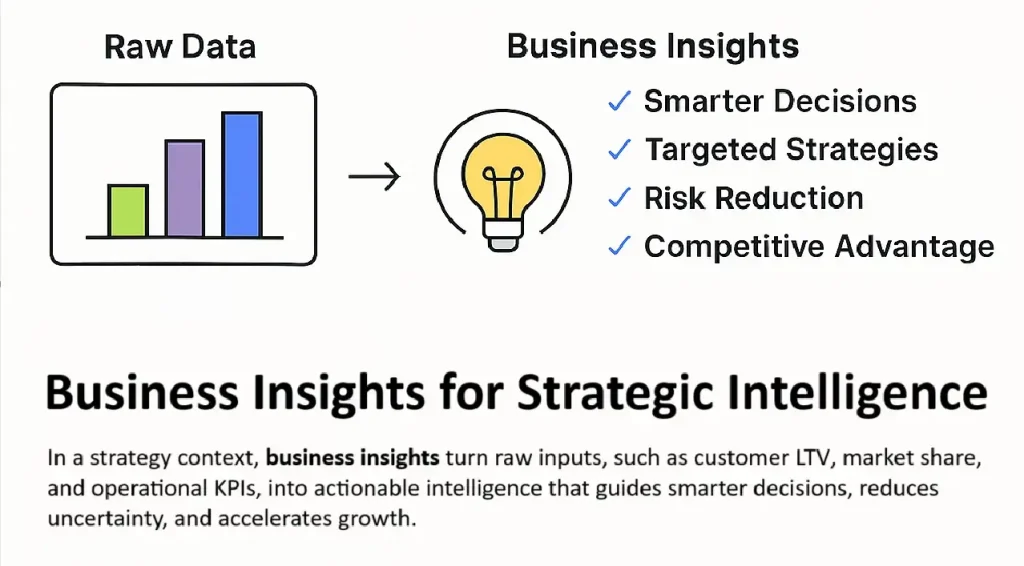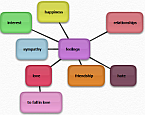The Role of Insights in Modern Business Growth Strategies

Businesses are constantly seeking ways to stay competitive and grow. Traditional methods of decision-making, often based on intuition or past experiences, no longer provide the clarity needed to navigate complex markets.
Instead, companies are increasingly turning to insights, data-driven understanding of trends, customer behavior, and market changes, to guide their growth strategies. Leveraging insights effectively can transform a business, enabling it to make informed decisions, anticipate challenges, and uncover opportunities that drive sustainable growth.
Understanding Business Insights
Business insights refer to the actionable knowledge that organizations derive from data. Unlike raw data, which simply represents information, insights reveal patterns, trends, and relationships that help businesses understand what is happening, why it is happening, and what might happen next. By translating data into meaningful insights, companies can craft wealth strategies that are both targeted and effective.
The importance of insights in business cannot be overstated. They form the backbone of decision-making across all areas, from marketing and sales to project management and operations. Businesses that actively leverage insights can make smarter choices, reduce risks, and stay ahead of competitors who rely solely on traditional methods.

Driving Marketing Effectiveness
One of the most significant ways insights contribute to business growth is through enhanced marketing strategies. Insights into customer preferences, behaviors, and demographics allow companies to create campaigns that resonate with their target audience.
For instance, segmentation based on purchasing habits can help marketers deliver personalized messaging, improving engagement and conversion rates.
Moreover, digital marketing tools and analytics platforms provide detailed insight into online performance trends. Businesses like fashion, software development, and logistics can monitor how users interact with websites, social media channels, and digital ads, gaining a clear picture of what drives engagement and sales. Tools like Click Insights help companies measure their digital presence accurately, ensuring that strategies are based on reliable, actionable data rather than guesswork.
Informing Product Development and Innovation
Insights are equally critical when it comes to product development. Understanding what customers need, what problems they face, and how they interact with existing products allows companies to innovate strategically. Data-driven insights can reveal gaps in the market, highlight areas for improvement, and inform the design of new products or services that meet evolving customer expectations.
For example, analyzing customer feedback and reviews can uncover recurring pain points that may not be immediately obvious. This information empowers project teams to prioritize enhancements that deliver real value, increasing customer satisfaction and loyalty.
In a competitive environment, companies that integrate insights into their innovation processes are more likely to introduce products that resonate with the market and achieve long-term success.
Enhancing Operational Efficiency
Insights are not limited to customer-facing functions; they are also vital for optimizing internal operations. By analyzing operational data, businesses can identify inefficiencies, predict demand, and streamline processes.
For instance, insights into supply chain performance can highlight bottlenecks or areas where resources are underutilized, enabling organizations to make adjustments that save time and reduce costs.
Additionally, predictive analytics, using historical data to forecast future trends, can help businesses prepare for fluctuations in demand, manage inventory effectively, and reduce waste. Companies that leverage operational excellence insights strategically can achieve a level of agility that allows them to respond quickly to market changes, enhancing overall resilience and competitiveness.
Supporting Strategic Decision-Making
At the highest level, insights serve as a critical foundation for strategic decision-making. Executives rely on insights to identify growth opportunities, assess market conditions, and evaluate potential risks. This data-driven approach minimizes the reliance on assumptions and ensures that bold decisions are grounded in reality.
Insights can also reveal emerging trends that may influence the direction of the business. For instance, tracking shifts in consumer behavior or competitor activity can help companies anticipate market changes and adjust strategies proactively. By integrating insights into strategic planning, organizations can align resources, prioritize initiatives, and focus on areas that deliver the most significant potential for growth.
Building a Culture of Insight-Driven Growth
For insights to truly drive business growth, organizations must cultivate a culture that values data-driven decision-making. This involves investing in the right tools, technology, and talent to collect, analyze, and interpret data effectively. Teams across the organization should have access to relevant insights and be encouraged to use them in their daily work.
Education and training are also crucial. Employees must understand how to interpret data correctly and how to apply insights in practical ways. A culture that prioritizes insights fosters collaboration, innovation, and accountability, empowering teams to make decisions that contribute to overall business success.
Measuring Success and Adapting
Insights are essential for measuring the impact of business strategies and adapting when necessary. By continuously monitoring performance metrics and analyzing trends, companies can determine what is working and what requires adjustment. This iterative approach ensures that strategies remain relevant and effective, even as market conditions evolve.
Regularly reviewing insights allows businesses to refine processes, optimize resource allocation, and stay agile. Organizations that embrace continuous learning through insights are better positioned to capitalize on opportunities, mitigate risks, and sustain long-term growth.
Closing Remarks
Insights have become indispensable for businesses seeking growth. From marketing and product development to operations and strategic planning, insights enable organizations to make informed decisions, anticipate challenges, and seize opportunities.
By fostering a culture of data-driven decision-making, businesses can translate information into action, driving sustainable growth and securing a competitive edge in the modern marketplace. By consistently turning insights into strategic action, businesses not only evolve with the market but set the pace for innovation, customer value, and long-term success.













